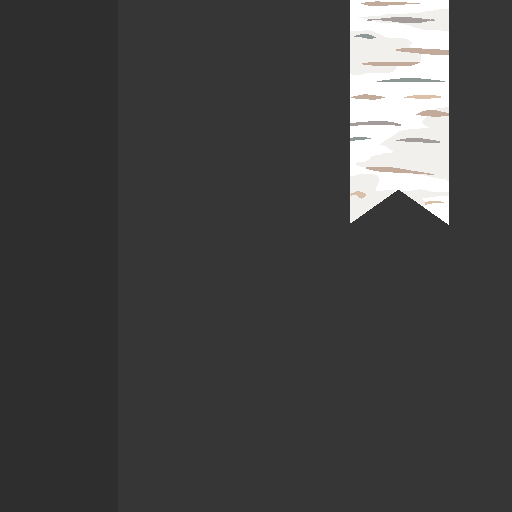Juvenalia: Writing by a younger, less sophisticated me. Read on, but remember that this belongs to the old world. 🥚
Just when you thought the Russosphere couldn’t get any more crowded and lively…
In this spiritual successor to A Tale of Five Sites, I share my thoughts on four think tank and media newcomers to the Russia-watching arena.
Russia Political Insight
Russia Political Insight is a project launched in 2014 by Dr. Daniel Treisman which focuses on research collaboration to deepen understanding of Russia’s domestic political landscape.
Our goal is to bridge expert, journalistic, and academic communities to produce accounts, informed by scientific research but written in accessible language, that can guide Western policies.
The RPI team consists of 10 senior and 8 junior members from academia and journalism, including Treisman, Nicolai Petro, Maria Lipman, Maxim Trudolyubov, and Andrei Soldatov.
As a site, Russia Political Insight is bare-bones, serving only to provide links to its contributors’ articles in other English and Russian-language publications. The team is also preparing to publish an edited volume of articles this year (might it be this?). Don’t expect much insight from Russian Political Insight, however – a quick perusal of its articles reveals that the team takes an almost uniformly hostile stance regarding the Russian government like most conventional Russia specialists. But due to the strength of some RPI members (Treisman has made a compelling case for why we should see Russia as it is, rather than as it’s imagined/depicted), I’m holding out hope that their upcoming book will at least be well-argued.
Rethinking Russia
Rethinking Russia is a relatively new think tank, established in Moscow in 2015. Its primary research areas are Russian domestic/foreign policy, socioeconomic issues, and relevant international developments. Rethinking Russia takes the following circumstances as premise in its research:
- strong interdependence between domestic and foreign policies;
- evident need for the dialogue between Russia and the West in a new format of relationship;
- current crisis of Russian Studies, lack of profound expert support for decisions on Russia in the West.
Rethinking Russia’s articles aren’t uniformly hostile to Russia and if anything, their tone ranges from neutral to sympathetic. But the line between analysis and opinion sometimes blurs, Western and Russian claims aren’t given equally fair treatment, and reports don’t dig as deep as one might hope. Aside from the ‘History’ section, this think tank boasts few unique features, and updates are sporadic. Rethinking Russia’s foreign press reviews rely heavily on reposted articles from the usual suspects: The New York Times, The Guardian, Foreign Policy, The Washington Post. Despite these weak points, Rethinking Russia is a site worth investigating.
Can’t seem to find a contributors/columnists list though.
Sample article: Macron-Putin Meeting: Russophobia Souring Bilateral Relations and Jeopardizing Press Freedom in France
Russia Matters
Russia Matters is a project launched in 2016 by Harvard’s Belfer Center for Science and International Affairs with funding from the Carnegie Corporation. Its stated main aim is to ‘improve the understanding of Russia and the U.S.-Russian relationship among America’s policymakers and concerned public.’ The specific aims of Russia matters are to help:
- U.S. policymakers and the general public gain a better understanding of why and how Russia matters to the United States now and in the foreseeable future and what drivers propel the two countries’ policies in areas of mutual concern;
- Ensure that U.S. policies toward Russia are conducive to the advancement of long-term U.S. vital national interests, but that they also improve cooperation in areas where interests converge and mitigate friction in areas of divergence;
- Foster a new generation of Russia experts;
- Build bridges between academia and the policymaking community.
Russia Matters’s editorial board boasts a few notable names: Graham Allison, Robert Legvold, Matt Rojansky. Its institutional partners are also prominent, though they may raise a few hackles.
Materials released by this think tank include RM exclusives (commissioned by Russia Matters exclusively for its website), recommended reads (deemed particularly noteworthy by its editorial team), Partner Posts (originally published by our partners elsewhere), Future Policy Leaders (pieces by promising young scholars and policy thinkers), a news feed (the usual outlets, plus a *special* sidebar for The Moscow Times), a blog titled “In the Thick of It”, and some rather questionable ‘Quoteworthy’ quotes:
When German Chancellor Helmut Kohl suggested to U.S. President George H. W. Bush in 1990 that Moscow should get something in return for its acquiescence to the reunification of Germany, Bush replied: “To hell with that! We prevailed, they didn’t. We can’t let the Soviets clutch victory from the jaws of defeat.”
There’s also ‘Contestable Claims’ – a section in which assertions about Russia are fact-checked and listed according to a stoplight color code: red for false, yellow for partially correct, green for true. Neat.
Slantwise, Russia Matters leans toward realism (not a bad thing, IMHO) and U.S.-centric, but without clear dogma. The think tank is young, and it still has time to topple in any direction.
Sample article: In France, Would a Macron Victory Spell Defeat for Putin? Or a Shift to ‘Multipolarity’?
The Vostokian
The Vostokian was founded in 2015 as a forum on which students and young professionals could publish their writings on politics and economics in Eastern Europe and the Balkans. It has since blossomed into a full-fledged online magazine. The majority of The Vostokian’s authors and editorial board members remain students, and it is self-funded by the editorial staff. Honestly, I find that inspiring. I can’t speak for the Balkans articles, but in Russia articles it shows: granted, The Vostokian’s viewpoints aren’t novel, but the articles somehow feel free of partisan dead weight. Perhaps this is what happens when people genuinely motivated to learn about Russia are allowed to take the reins?
The Vostokian is overwhelmingly focused on Eastern Europe. The most recent post (a media roundup) is dated June 7th. There have been no Russia-centric articles posted since November 19, 2016.
Sample article: Why is Moscow Demolishing Kiosks?
